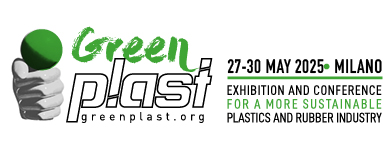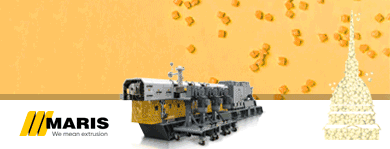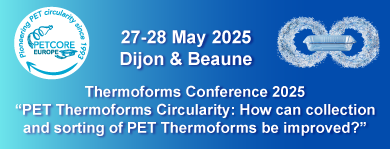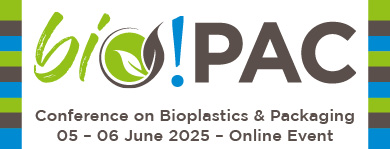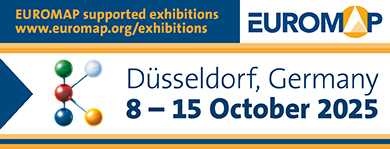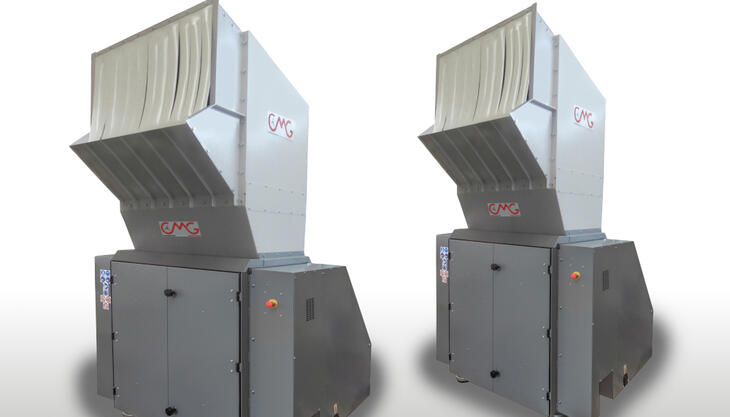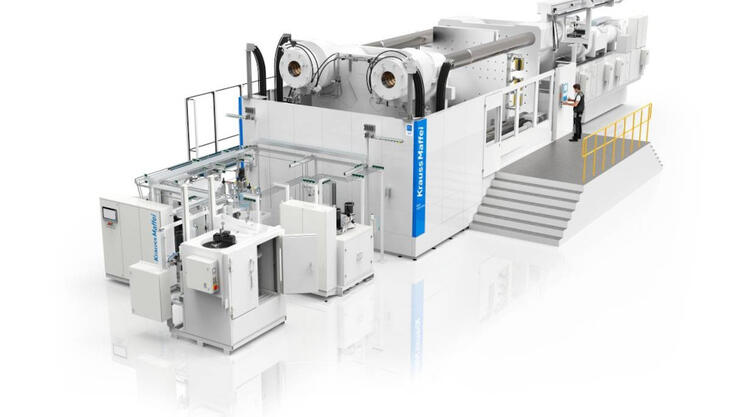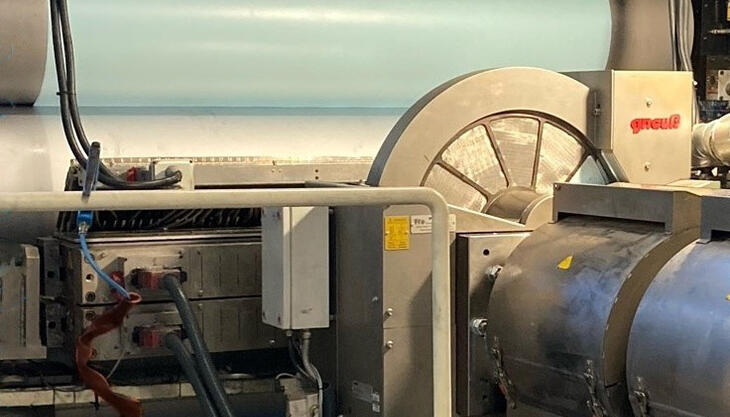High efficient drying systems for any application and technology
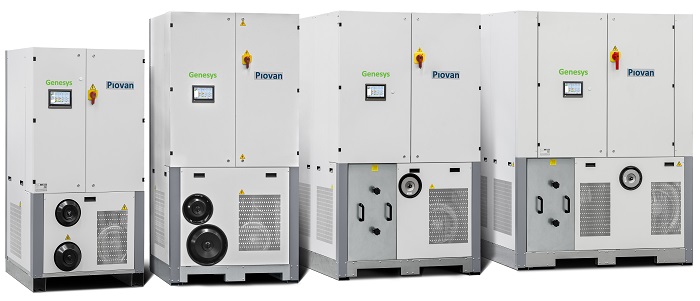 The new Genesys
line of auto-adaptive single hopper drying systems from Piovan delivers optimal
and consistent operating conditions and lower energy consumption. It is one of
the first patent issued in Europe for a high-efficiency polymer drying system.
The new Genesys
line of auto-adaptive single hopper drying systems from Piovan delivers optimal
and consistent operating conditions and lower energy consumption. It is one of
the first patent issued in Europe for a high-efficiency polymer drying system.
The plastics industry processes non-hygroscopic and hygroscopic polymers. In non-hygroscopic polymers, the moisture is superficial and therefore eliminated by routine drying. With hygroscopic polymers, on the other hand, the moisture also penetrates into the resin, and so a drying system generating dry air using aluminium silicate, a material capable of trapping water molecules, is required.
Modern drying systems do not stop at drastically lowering residual moisture, instead they regulate the exact content to required levels for polymer processing. The systems are highly reliable - which means operating consistency and repeatable results - and energy efficient.
In developing the new Genesys, Piovan has incorporated process control elements in addition to these bonus features (high operating reliability, energy efficiency):
-
consistency in the physical characteristics of the polymer after drying;
-
the system adjusts automatically to the initial conditions of the polymer and those required by the process.
There are many variables in the drying process:
- drying temperature;
- air dew-point (the quantity of residual moisture);
- the airflow capacity and the properties of the plastic granule to be processed;
- ambient temperature;
- initial moisture;
- instantaneous quantity of material processed;
- residual moisture.
All these parameters have been taken into account in the Genesys project, launched by Piovan in 2009 for PET preform and bottle production only and now offered in a new range of systems for a much wider application.
A single-hopper, individual or central, fully automatic drying system
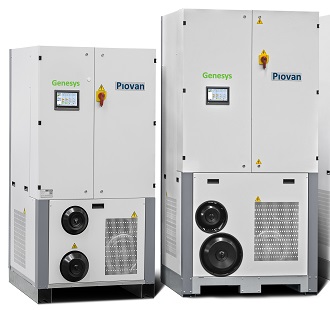 It can
adapt and automatically control operating parameters based on ambient
temperature, initial moisture level, type and quantity of polymer, the final
moisture content of the polymer, and granule size. In conventional applications
a drying unit is commonly used to generate dry air, which is then circulated in
a drying hoppers. Polymers are different from each other and require specific
individual conditions for optimum operation (airflow, temperature and pressure)
depending on the different process variables. A safety condition is
systematically adopted and the drying system is sized based on the most
critical processing parameters, at maximum material consumption, at maximum
temperature, with the highest airflow. However, this goes against any principle
of energy efficiency and raises running costs, as these extreme conditions
rarely occur. Instead, Genesys adjusts and controls optimal operating settings
for the material to be dried, using only the overall amount of energy strictly
required. The settings are constantly compared with the data collected by the
sensors installed on the system. A patented measuring unit, located in the air
supply line, adjusts and controls the airflow instantaneously and
independently. The airflow is modulated automatically by the drying unit,
resulting in optimum process operating conditions. This way, a medium capacity
Genesys system (drying 200-250 kg/h of polymer) provides savings of as much as
50% with respect to a traditional drying systems of equivalent capacity.
It can
adapt and automatically control operating parameters based on ambient
temperature, initial moisture level, type and quantity of polymer, the final
moisture content of the polymer, and granule size. In conventional applications
a drying unit is commonly used to generate dry air, which is then circulated in
a drying hoppers. Polymers are different from each other and require specific
individual conditions for optimum operation (airflow, temperature and pressure)
depending on the different process variables. A safety condition is
systematically adopted and the drying system is sized based on the most
critical processing parameters, at maximum material consumption, at maximum
temperature, with the highest airflow. However, this goes against any principle
of energy efficiency and raises running costs, as these extreme conditions
rarely occur. Instead, Genesys adjusts and controls optimal operating settings
for the material to be dried, using only the overall amount of energy strictly
required. The settings are constantly compared with the data collected by the
sensors installed on the system. A patented measuring unit, located in the air
supply line, adjusts and controls the airflow instantaneously and
independently. The airflow is modulated automatically by the drying unit,
resulting in optimum process operating conditions. This way, a medium capacity
Genesys system (drying 200-250 kg/h of polymer) provides savings of as much as
50% with respect to a traditional drying systems of equivalent capacity.
Genesys is capable
of calculating exactly how much material is used by the processing machine/s
and adjusts the operating parameters accordingly. In addition to maintaining a
constant dew-point, Genesys adjusts the airflow to the quantity of material
effectively used, regulating the thermal load for each kg of polymer processed.
The control system of Genesys is provided with an algorithm which varies the quantity of air supplied to the hopper, circulating the air content required to keep the thermal load constant. Maximum operating efficiency is achieved when the entire thermal energy in the process air is transferred to the material. The air returning from the hopper to the dryer therefore does not require cooling water in order to ensure system operation and absorption by the aluminium silicate molecular sieves.
Configurations and features
The Genesys range today comes in three configurations - Smart, Plus and Adaptive - to meet diverse operating needs. A microprocessor, controlled by a Piovan proprietary software, provides electronic control. The operator’s interface is an 8-inch, colour touch screen. The HMI offers access to all the system’s components for specific adjustments or settings.
The hopper has new shock-resistant finish and maintain the exclusive Piovan design which, in addition to ensuring operator safety - independently from the internal temperature, the external surface temperature never exceeds 40°C - also enables maximum thermal exchange between air and the material.



